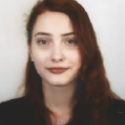
Marharyta Ivakhnenko
Work place: Department of Computer Systems Software, National Technical University of Ukraine “Kyiv Polytechnic Institute”, Kyiv, 03056, Ukraine
E-mail: margarita.ivakhnenko@gmail.com
Website: https://orcid.org/0009-0008-4303-1858
Research Interests: Software Engineering
Biography
Marharyta Ivakhnenko, Master at the Department of Computer Systems Software of the Faculty of Applied Mathematics, National Technical University of Ukraine “Kyiv Polytechnic Institute”, Ukraine. Research interests: Software Engineering, Computer Vision Technology.
Author Articles
Low-Light Image Enhancement Technology Based on Image Categorization, Processing and Retinex Deep Network
By Zhengbing Hu Oksana Shkurat Krzysztof Przystupa Orest Kochan Marharyta Ivakhnenko
DOI: https://doi.org/10.5815/ijigsp.2024.05.01, Pub. Date: 8 Oct. 2024
Low-light scenes are characterized by the loss of illumination, the noise, the color distortion and serious information degradation. The low-light image enhancement is a significant part of computer vision technology. The low-light image enhancement methods aim to an image recover to a normal-light image from dark one, a noise-free image from a noisy one, a clear image from distorting one. In this paper, the low-light image enhancement technology based on Retinex-based deep network combined with the image processing-based module is proposed. The proposed technology combines the use of traditional and deep learning methodologies, designed within a simple yet efficient architectural framework that focuses on essential feature extraction. The proposed preprocessing module of low-light image enhancement is centered on the unique knowledge and features of an image. The choice of a color model and a technique of an image transformation depends on an image dynamic range to ensure high results in terms of transfer a color, detail integrity and overall visual quality. The proposed Retinex-based deep network has been trained and tested on transformed images by means of preprocessing module that leads to an effective supervised approach to low-light image enhancement and provide superior performance. The proposed preprocessing module is implemented as an independent image enhancement module in a computer system of an image analysis and as the component module in a neural network system of an image analysis. Experimental results on the low light paired dataset show that the proposed method can reduce noise and artifacts in low-light images, and can improve contrast and brightness, demonstrating its advantages. The proposed approach injects new ideas into low light image enhancement, providing practical applications in challenging low-light scenarios.
[...] Read more.Other Articles
Subscribe to receive issue release notifications and newsletters from MECS Press journals